Entrepreneurs realize dreams in Zhangjiang
"Our company only had a few people when we returned to China to start a business four years ago, but now we have more than 400 people," said Ma Handong, co-founder and vice president of AI healthcare company Synyi.
Ma and Zhang Shaodian, founder and CEO of the company, are alumni of Columbia University in the United States, where they met in the Department of Biomedical Informatics. “Our goal is to make hospitals more intelligent."
After returning to China, they decided to set up company in Zhangjiang, a world-class sci-tech park in Pudong, Shanghai. Today, the intelligent decision-making system developed by Synyi has been used by more than 100 tertiary-class hospitals.
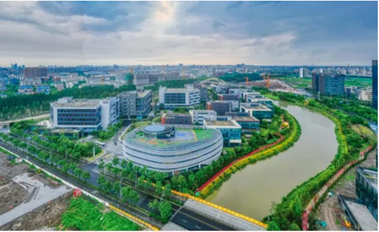
There are many other entrepreneurs just like them who are pursuing their dreams in Zhangjiang.
Lead the market through innovative development
Zhangjiang's strong sci-tech environment is closely related to the success of its entrepreneurs.
In 1994, at the invitation of the Shanghai Municipal Government, Dr. Chang Zhaohua came to visit Shanghai from the United States. Witnessing the passion of local entrepreneurs inspired him to return to China to start a business.
In 1998, Chang founded medical device company MicroPort at a factory in Zhangjiang. At that time, few hospitals and few doctors in China were qualified to perform micro-trauma surgery, and all related equipment was imported, driving up costs.
MicroPort produced the first balloon catheter, the first bare stent, and the first drug stent in China, and has gradually grown into a large-scale high-end medical device R&D and manufacturing company. It has also made major advancements in coronary artery drug eluting stent systems, earning wide recognition in the industry. Heart stents produced by MicroPort have brought hope to many heart patients in China.
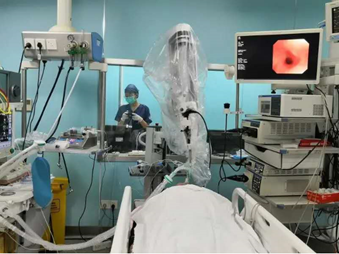
In 2018, the world's most authoritative medical journal "The Lancet" published the research results of a large-scale clinical trial for MicroPort’s Firehawk stents in Europe, the first time in 200 years that Chinese medical devices have appeared in the journal.
Pharmaceutical stents are now widely available domestically, drastically reducing reliance on imports. MicroPort’s coronary stents have maintained the largest domestic market share since their launch.
"This place has allowed us to realize our dreams," said one entrepreneur. In Zhangjiang, a large number of overseas returnees have achieved their dreams and established well-known and innovative enterprises such as SMIC, Zhanrui Communications, China Microelectronics, and Hualing Pharmaceutical.
Gathering talent aids in development
"Year after year, doctors record so much medical information, but these records are stowed away in hospital archives or information systems." Zhang and Ma's original intention was very simple. "Our plan is to make use of these medical records with the help of artificial intelligence algorithms to create a medical big data system for hospitals, doctors, and patients."
They said the idea was still in its early stages when they first started their business, but Zhangjiang's innovative and entrepreneurial environment allowed them and many others to develop and realize their dreams.
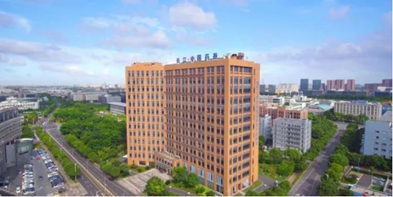
In addition to having a strong foundation for the biomedical industry, Zhangjiang is also rich in talent.
Liang Changlin is a veteran who once worked in programming. When he came to Shanghai in 2002, the Zhangjiang High-tech Station on Metro Line 2 caught his attention. "In the beginning, I didn't know anyone, so I had to write the software and sell it myself. But slowly, our company attracted more and more talent," he said.
In February, "Ding Dong Green Grocery Shopping", founded by Liang, became instantly successful with a monthly revenue of 1.2 billion yuan ($169.71 million). The company’s goal is make grocery shopping more convenient.

Zhangjiang has also taken strict measures to prevent and control the spread of COVID-19.
More than 10 hospitals in Wuhan are using TMi disinfection robots that carry out various tasks in wards, greatly reducing the risk of infection by medical staff. The robot was developed by a man named Pan Jing while working in Zhangjiang.
After graduating from university, Pan joined a multinational company in Zhangjiang, where he worked for 10 years before leaving to start a business. In 2018, he developed the TMi disinfection robot, which is now being used in many hospitals.
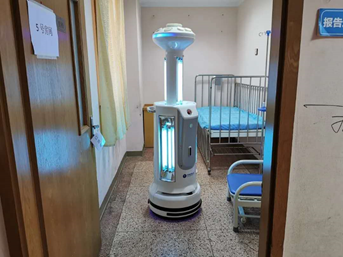
Provide high-quality services for sci-tech enterprises
Throughout four years of operation, Synyi has obtained four rounds of investment worth a total of 550 million yuan, and the company's valuation now exceeds 2 billion yuan. Its investors include not only famous venture capitals such as Sequoia Capital, Jiyuan Capital, and Zhenge Fund, but also industry giants such as Tencent and Sinopharm.
The concentration of many entrepreneurs and advanced technology has attracted a lot of capital. Venture capital institutions and funds at home and abroad have begun to concentrate in Zhangjiang, allowing science and technology enterprises to quickly obtain capital.
Ye Sen, who has worked at government agencies for many years, has benefited greatly from this. When he was 45, Ye resigned from his job and established an incubator specializing in investment and services for science and technology entrepreneurs. "My approach to innovation is to grow with innovators". He invests in integrated circuits and artificial intelligence, two rapidly developing fields in Zhangjiang.
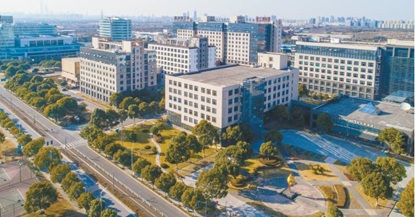
Diverse services promote the growth of sci-tech enterprises.
Synyi has developed four technological devices for treating diseases such as venous thromboembolism. "It took a year and a half to develop the first device, and the efficiency of the other three has been greatly improved, taking an average of three months to develop. They help doctors improve the accuracy of their diagnoses," said Ma.
This year marked the 30th anniversary of the beginning of Pudong's development and opening up. Zhangjiang has transformed from a district to a science city and has increased its influence in many areas in Shanghai and surrounding provinces.
In the past few days, Wu Qing, deputy mayor of Shanghai and director of the sci-tech innovation office, and his colleagues have visited a number of local enterprises to seek advice from entrepreneurs for the formulation of the 14th Five-Year Plan for Zhangjiang Science City.
Zhangjiang's story is still ongoing.
